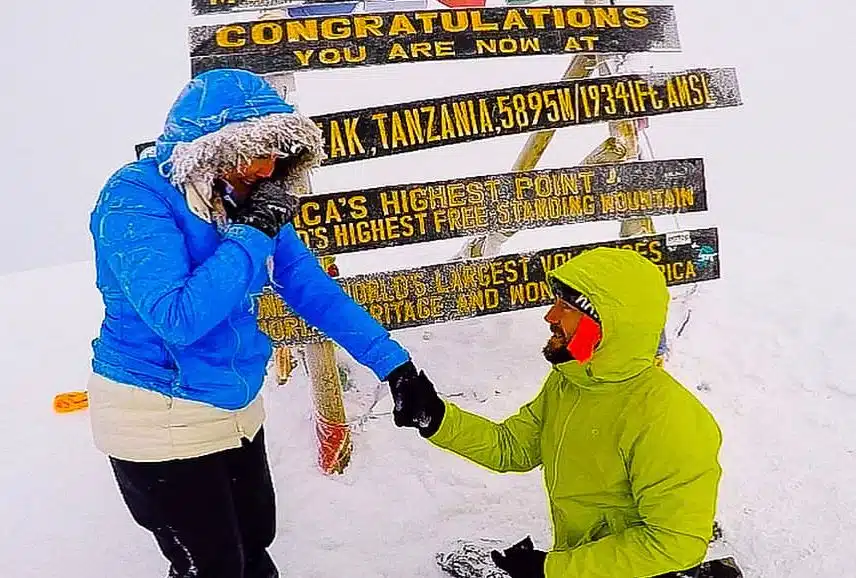

Climb Kilimanjaro: Discover everything you need to know about conquering Africa’s highest peak, from routes and gear to local culture and budget tips. Embark on an unforgettable adventure!”
Mount Kilimanjaro, Africa’s tallest mountain, offers an unparalleled trekking experience. Rising majestically above the plains of Tanzania, this dormant volcano has captivated adventurers for centuries. The allure of Kilimanjaro lies not only in its stunning views and diverse ecosystems but also in the personal challenge it presents to climbers. Whether you’re an experienced mountaineer or a novice trekker, climbing Mount Kilimanjaro is a bucket-list adventure that promises to be both rewarding and transformative.
Location of Mount Kilimanjaro
Mount Kilimanjaro is located in northeastern Tanzania, near the border with Kenya. It stands at 19,341 feet (5,895 meters), making it the highest peak in Africa and the tallest free-standing mountain in the world.
Climate and Weather Conditions
Kilimanjaro’s climate varies by altitude. The base experiences tropical conditions, while the summit is arctic. Climbers traverse five ecological zones: the cultivated zone, rainforest, heath, alpine desert, and the arctic summit. Weather can change rapidly, with temperatures ranging from hot and humid at the base to freezing cold at the summit.
Best Time to Climb
The best times to climb Kilimanjaro are during the dry seasons: from January to mid-March and from June to October. These periods offer the most stable weather conditions, improving the chances of a successful and enjoyable trek.
Local Traditions and Customs
The Chagga people, who inhabit the slopes of Kilimanjaro, have a rich cultural heritage. Their customs, music, and dances are integral to the region’s identity. Visitors often engage with local communities, gaining insight into traditional lifestyles.
Cuisine and Local Foods
Local cuisine includes staples like ugali (a maize porridge), nyama choma (grilled meat), and a variety of fresh fruits and vegetables. Trying local dishes is a delightful way to experience the culture.
Interaction with Local Communities
Many climbing tours offer opportunities to visit Chagga villages, learn about their agricultural practices, and participate in cultural exchanges. These interactions enrich the climbing experience, providing a deeper connection to the region.
Key Points of Interest on the Mountain
Nearby National Parks and Wildlife Reserves
Different Routes for Climbing Kilimanjaro
Wildlife Viewing and Photography
Kilimanjaro is home to various wildlife, including elephants, leopards, and a variety of bird species. The diverse ecosystems provide ample opportunities for photography.
Camping and Nightlife on the Mountain
Camping on Kilimanjaro is a unique experience, with nights spent under the stars. Campfires, shared stories, and camaraderie among climbers make for memorable evenings.
Essential Gear and Packing List
Accommodations and Lodging Options
Options range from budget hostels in Moshi to luxury lodges. On the mountain, accommodations depend on the route chosen, with some offering huts and others camping sites.
Transportation to and from Kilimanjaro
The closest airport is Kilimanjaro International Airport (JRO). From there, transportation options include taxis, shuttles, and guided tour transfers.
Climbing Mount Kilimanjaro is a life-changing adventure that offers physical challenges and cultural enrichment. From the diverse climbing routes to the vibrant local culture, every aspect of the journey is memorable. Whether you’re drawn by the allure of the summit or the unique experiences along the way, Kilimanjaro promises an adventure of a lifetime.